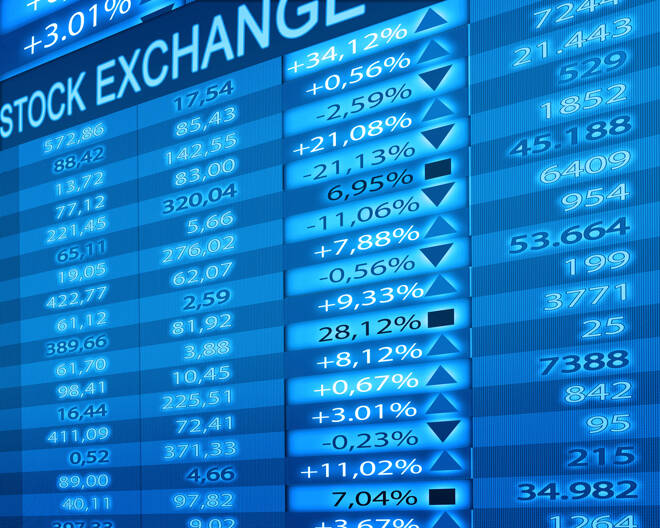Advertisement
Advertisement
Honeywell Q2 Profit Slumps 30% as COVID-19 Bites; Target Price $144 in Worst-Case
By:
Honeywell International Inc reported that its profit plunged 30% in the second quarter of 2020 as the COVID-19-related travel restrictions and a collapse in air travel has significantly impacted demand for aircraft spare parts.
Honeywell International Inc, a worldwide technology and manufacturing company, reported that its profit plunged 30% in the second quarter of 2020 as the COVID-19-related travel restrictions and a collapse in air travel has significantly impacted demand for aircraft spare parts.
The company reported a second-quarter sales decline of 19%, down 18% organic, operating margin contraction of 550 basis points, and segment margin contraction of 280 bps, with adjusted earnings per share of $1.26.
Honeywell, which makes parts for planes made by Boeing and Airbus SE, said its Q2 net income declined to $1.08 billion, or $1.53 a share, compared to $1.54 billion, or $2.10 a share, the same period a year ago. Revenue slumped nearly 19% to $7.48 billion.
Executive comment
“The second quarter was a challenging one, but we executed on the three things that will enable us to weather this downturn: aggressively managing cost, driving sales growth where demand is strong, and investing in exciting new technologies that, through careful attention to customer and end-user needs, will help keep people safe when they get back to the workplace, back to play, back to travel, and back to life,” Darius Adamczyk, chairman and chief executive officer of Honeywell said in a press release.
“In terms of cost management, we delivered $500 million in savings from the first phase of cost actions we announced earlier this year, and we funded over $250 million of repositioning in the quarter. In addition, we developed a second phase of cost actions that, when combined with our previously announced plan, will generate $1.4 billion to $1.6 billion of cost savings during 2020. We further enhanced our financial flexibility this quarter by issuing $3 billion of bonds at attractive rates, reducing our term loan from $6 billion to $3 billion, and fully drawing the remaining balance. We ended the quarter with $15.1 billion of cash and short-term investments on hand and an overfunded pension plan,” Adamczyk added.
Honeywell stock forecast
Fourteen analysts forecast the average price in 12 months at $158.62 with a high forecast of $177.00 and a low forecast of $144.00. The average price target represents a 3.18% increase from the last price of $153.73. From those 14, ten analysts rated ‘Buy’, four rated ‘Hold’ and none rated ‘Sell’, according to Tipranks.
Morgan Stanley’s base case target price is $143, $178 under a bull scenario and $106 under the worst-case scenario. several other equity research analysts have updated their Honeywell’s stock outlook. Honeywell had its price objective upped by stock analysts at Deutsche Bank to $163 from $149. Citigroup raised its price target to $170 from $155. Jefferies upgraded their target price to $170 from $160; Credit Suisse raised target price to $166 from $158 and UBS upped their price objective to $144 from $136.
We think it is good to hold for now as 50-day Moving Average and 100-200-day MACD Oscillator signals a mild bearishness.
Analyst view
“We view Honeywell’s long-term term COVID-19 disruption as outsized relative to the rest of our group. We expect Aero to remain weak through 2021 as flight hours see sharp declines and maintenance gets deferred until 2022. For Honeywell’s oil & gas related segments to see continued pressure building beyond 2Q as customer budgets come down due to weaker oil budgets,” said Joshua Pokrzywinski equity analyst at Morgan Stanley.
“We see Honeywell’s balance sheet capacity and repatriation potential as attractive, especially given management’s discipline in M&A to appropriately balance growth, value, and disruption. We believe industrials have found themselves tilting to value to find synergies without acknowledging disruption or ignoring value entirely for quality assets.”
About the Author
Vivek Kumarauthor
Vivek completed his education from the University of Mumbai in Economics and possesses stronghold in writing on stocks, commodities, foreign exchange, and bonds.
Advertisement
